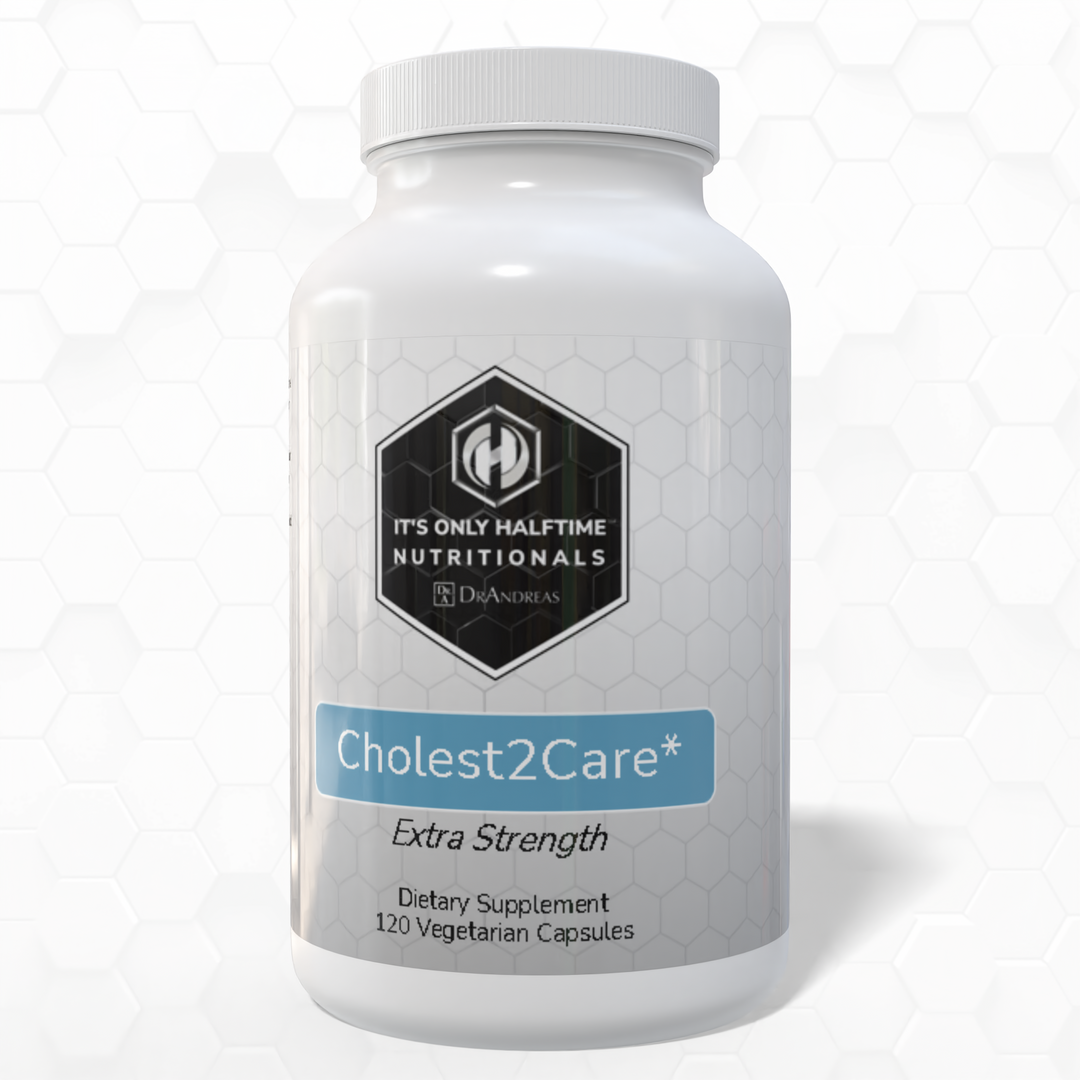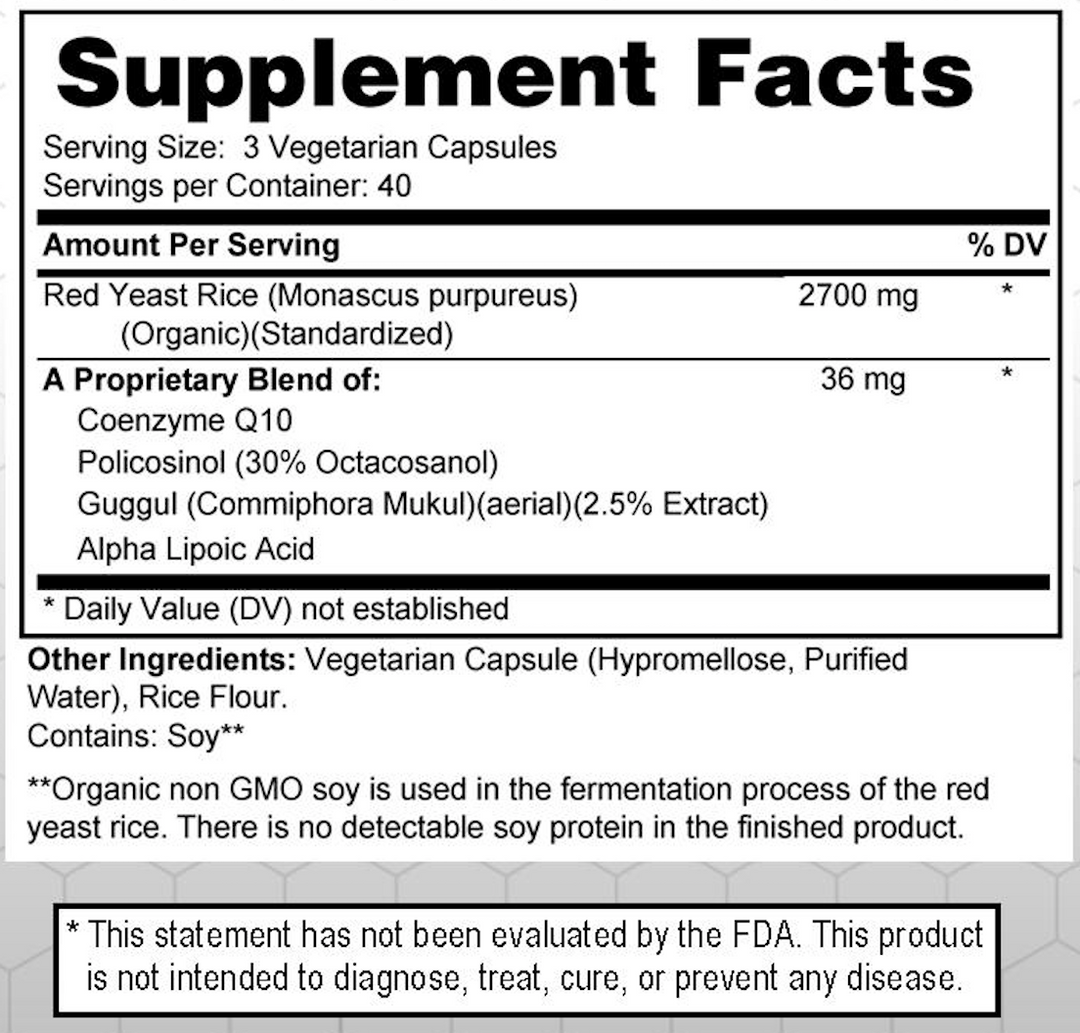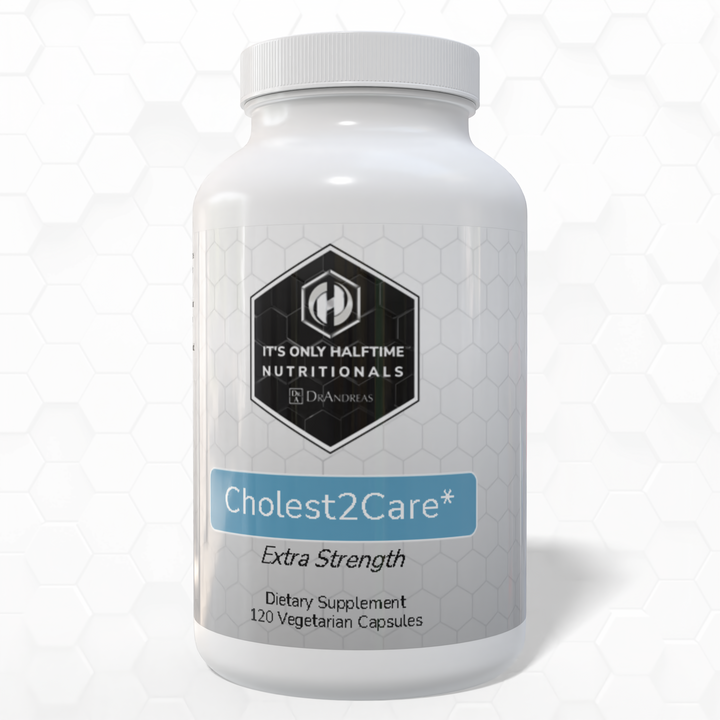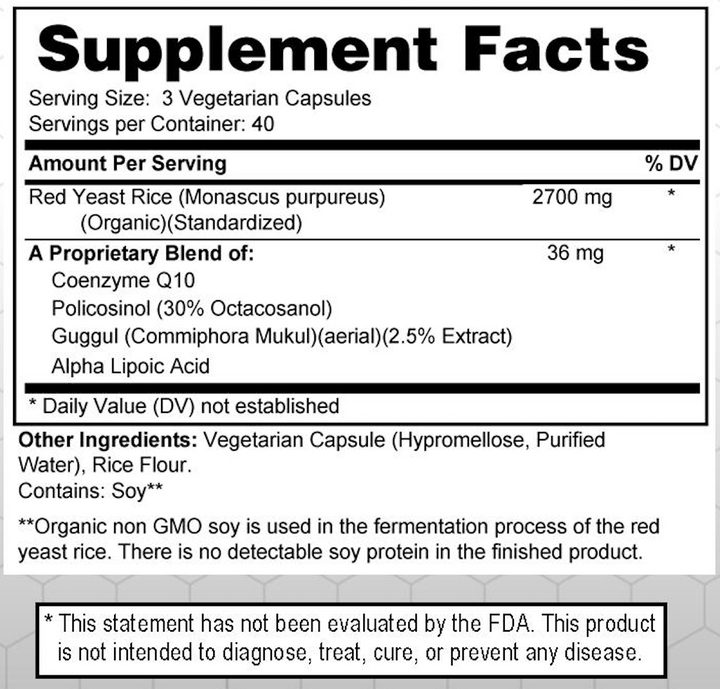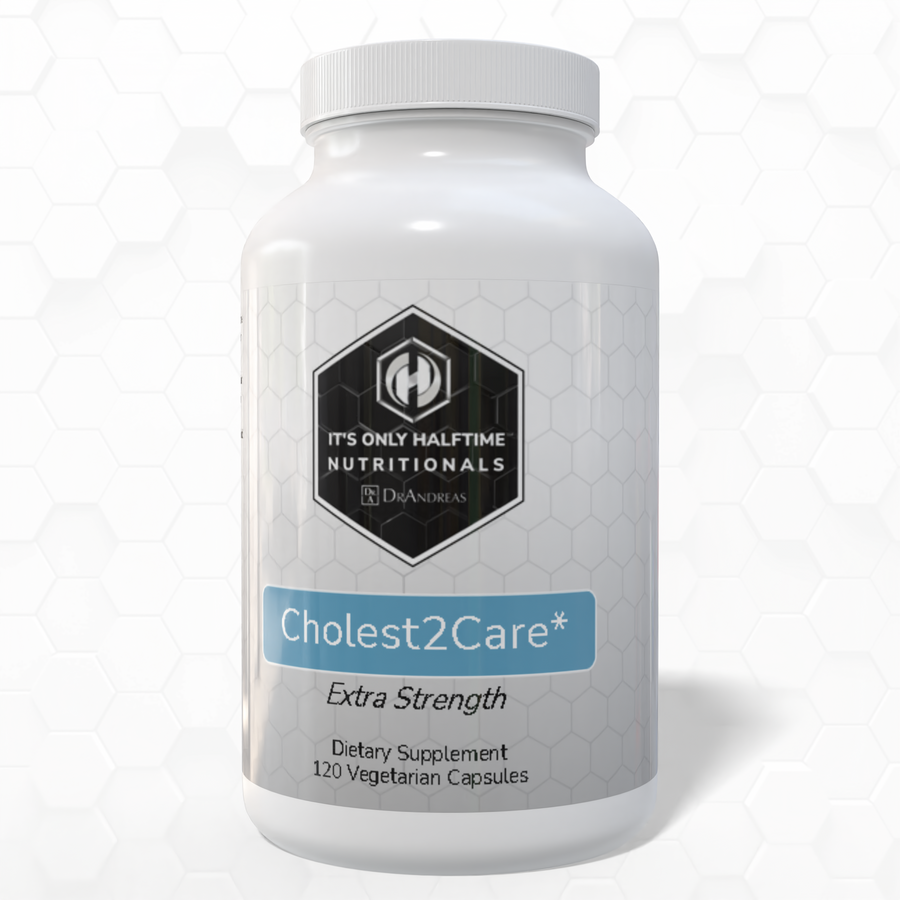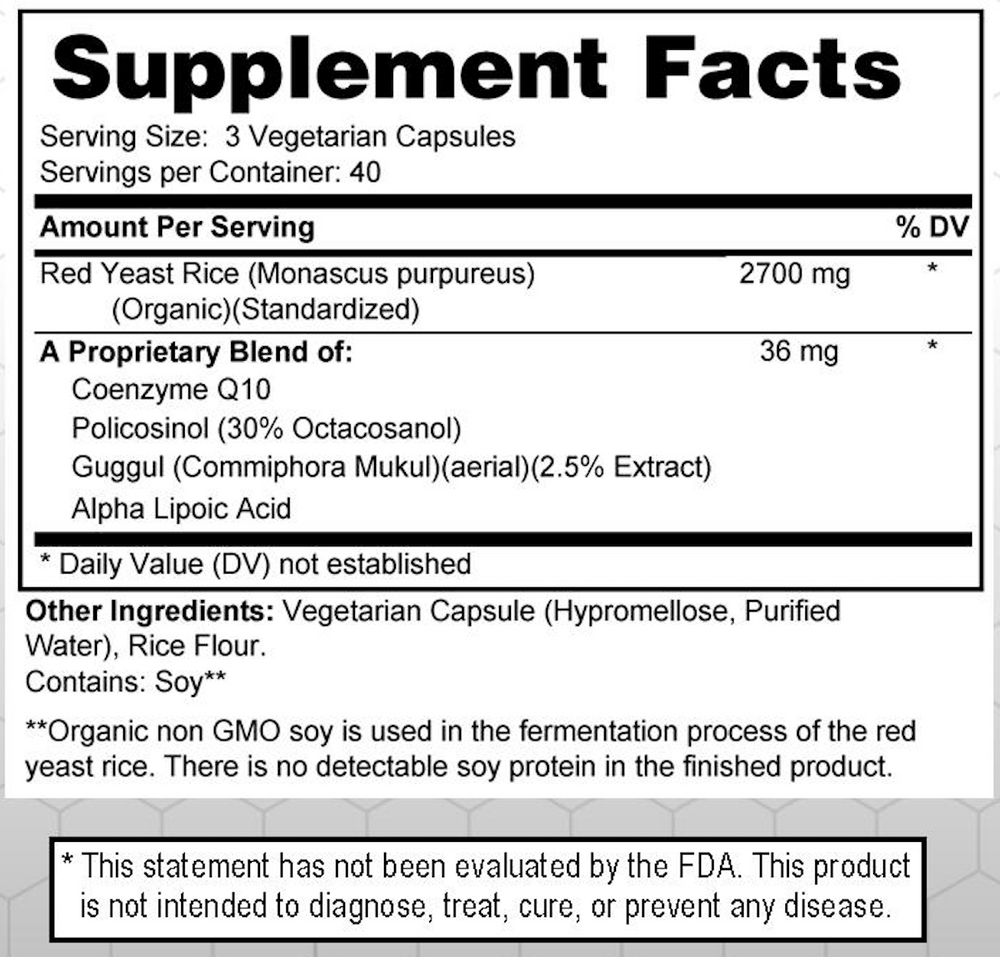❤️ Cholest2Care
Advanced Heart & Lipid Support with Organic Red Yeast Rice
The Story Behind the Formula
Your heart never takes a day off.
From the moment you wake to the moment you rest, it beats over 100,000 times a day — circulating life through every cell, every organ, every thought you’ll ever have. Yet too often, we take it for granted.
For decades, many have been told that “cholesterol problems” are a prescription-only story. But science — and experience — tell us another truth: your body holds a powerful ability to restore balance naturally when you nourish it with the right tools.
That’s why we created Cholest2Care™, a physician-formulated blend inspired by both ancient tradition and modern clinical science. It’s a next-generation formula crafted for those who want to protect the heart — without compromising the body.
This isn’t just another supplement.
It’s a carefully calibrated symphony of five proven ingredients that work in harmony to support lipid balance, vascular health, and cellular energy — the core foundations of long-term cardiovascular vitality.
The Power Within the Blend
🌾 Organic Red Yeast Rice (2700 mg)
Used for centuries in Traditional Chinese Medicine and validated by modern science, Red Yeast Rice naturally produces monacolins — compounds that help maintain healthy cholesterol levels by gently slowing the enzyme that triggers excess cholesterol production.
Unlike harsh synthetics, this is nature’s precision — standardized, organic, and tested for purity. In multiple human studies, Red Yeast Rice has shown the ability to reduce LDL cholesterol by up to 30%, lower total cholesterol, and improve overall lipid profiles.*
⚡ Coenzyme Q10
Because energy begins in the mitochondria, CoQ10 fuels the heart at the cellular level. It’s essential for ATP production — your body’s internal energy currency — and protects heart cells from oxidative stress. It’s especially critical for those who want to maintain vitality as they age, since CoQ10 levels naturally decline over time.
🌿 Policosanol (30% Octacosanol)
Extracted from the wax of sugar cane, this plant compound has shown promise in supporting healthy HDL levels while providing antioxidant protection against LDL oxidation — one of the earliest triggers of arterial plaque formation.
🌸 Guggul (Commiphora mukul, 2.5% extract)
An ancient Ayurvedic resin, Guggul has long been revered for promoting healthy lipid metabolism and thyroid balance. Modern studies show it may help support healthy cholesterol and triglyceride ratios, complementing the Red Yeast Rice for a balanced lipid response.
💥 Alpha-Lipoic Acid
A “universal antioxidant,” ALA supports vascular flexibility, protects against oxidative damage, and helps optimize glucose and lipid metabolism — essential for maintaining a healthy cardiovascular and metabolic state.
Together, these ingredients form the Cholest2Care™ matrix — a fusion of ancient wisdom and clinical precision that supports the very rhythm of life itself: your heartbeat.
What Makes Cholest2Care Different
We don’t believe in shortcuts, fillers, or unverified claims.
Cholest2Care is USDA Certified Organic, Non-GMO, clinically dosed, and third-party lab tested for purity and potency. Every batch is produced in an FDA-inspected, GMP-certified facility, ensuring what’s on the label is exactly what’s in the capsule.
No synthetic statins. No guesswork. Just results — rooted in science and nature.
How to Experience the Full Power of Cholest2Care
Consistency matters.
To unlock the full benefits of this formula:
-
Take 1–3 capsules daily in the evening with food.
-
Start with one capsule per day for the first 4–6 weeks.
-
Retest your lipid panel after 90 days to assess your personal response.
-
-
Support it with the fundamentals:
-
Eat real, whole foods rich in omega-3s and antioxidants.
-
Move your body daily — even brisk walking enhances vascular flow.
-
Stay hydrated and manage stress — both influence lipid metabolism.
-
-
Partner with your practitioner.
-
While Cholest2Care™ is naturally derived, the Red Yeast Rice it contains is powerful. Periodic lab monitoring of liver enzymes, CK, and cholesterol markers is advised.
-
Within weeks, you may notice improved energy, endurance, and peace of mind knowing you’re supporting your cardiovascular health the natural way.
The Final Word
Your heart is more than a muscle — it’s the engine of your life. And when it beats strong, so do you.
Cholest2Care was designed for those who refuse to settle for decline, who believe in science, nature, and the power within their own body to restore balance.
This is heart health redefined — not through prescriptions, but through precision.
Because a strong heart isn’t built overnight… it’s built every day you choose to care.
Cholest2Care — Because the best medicine is empowering your body to heal itself.
🕒 Suggested Use:
Take 1–3 capsules daily in the evening with food. Begin with the lowest dose and evaluate after 3 months. Consult your healthcare provider for lab monitoring while using this product.
‡ These statements have not been evaluated by the FDA. These products are not intended to diagnose, treat, cure or prevent any disease.
120 Vegetarian Capsules


